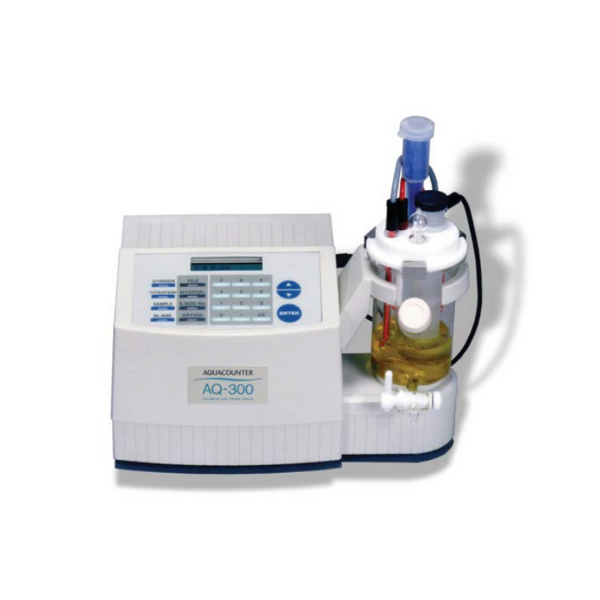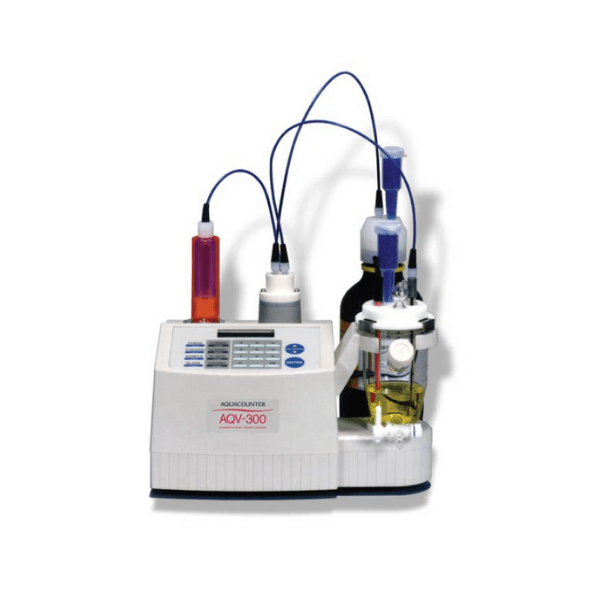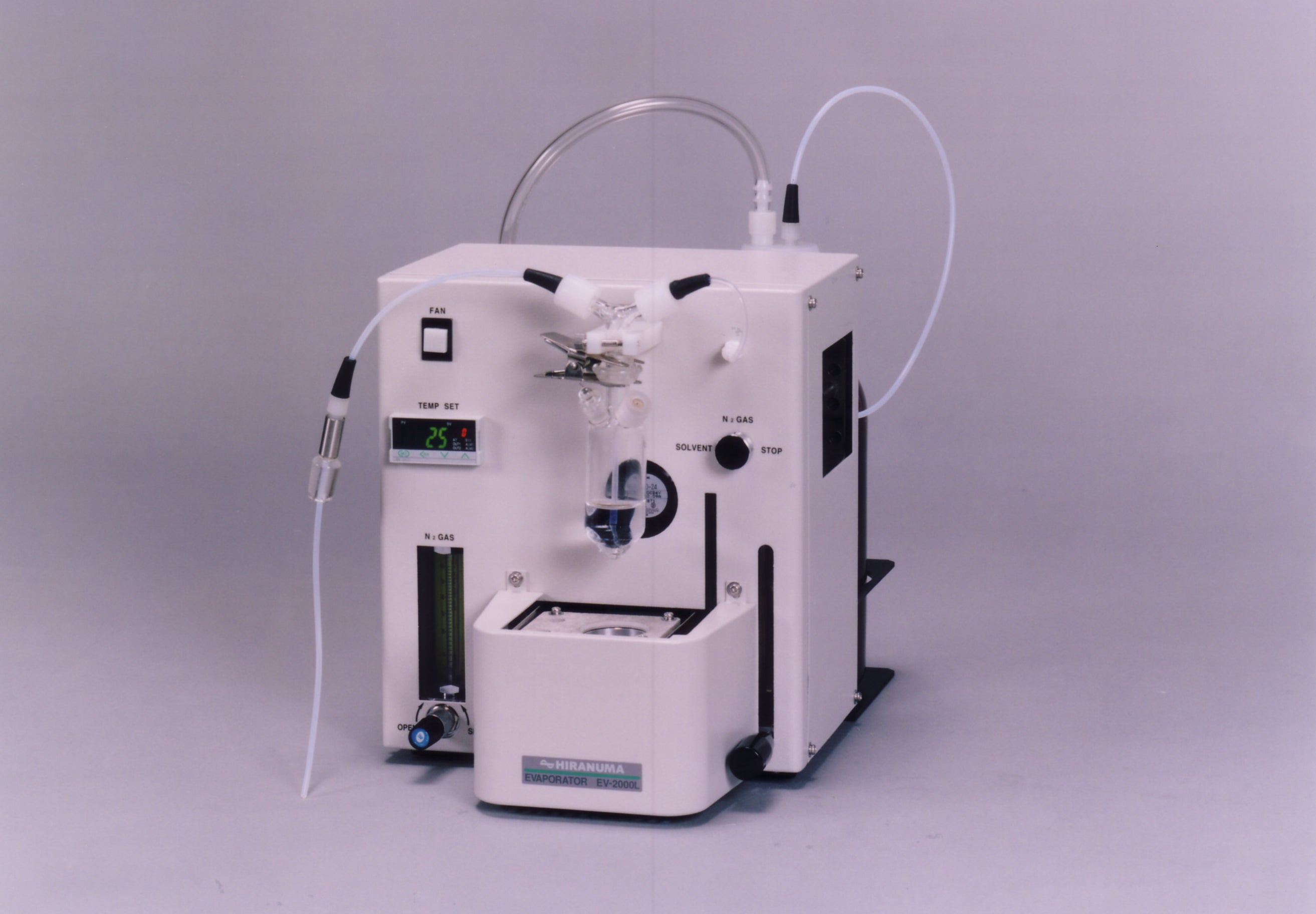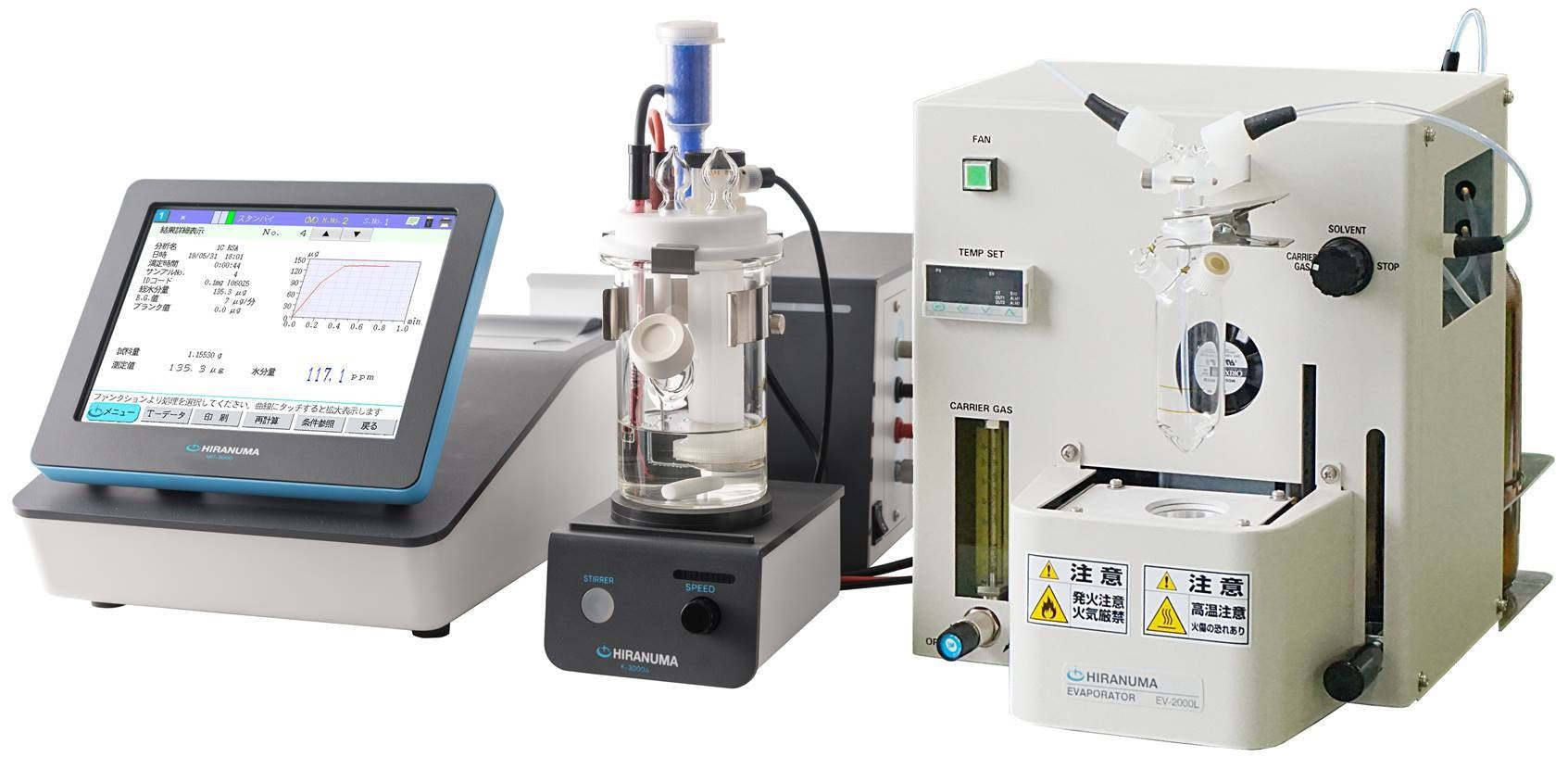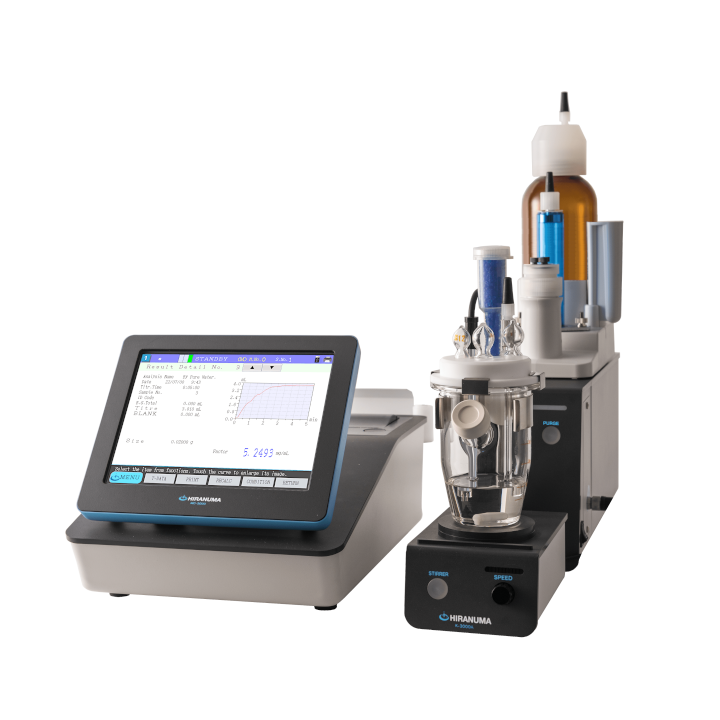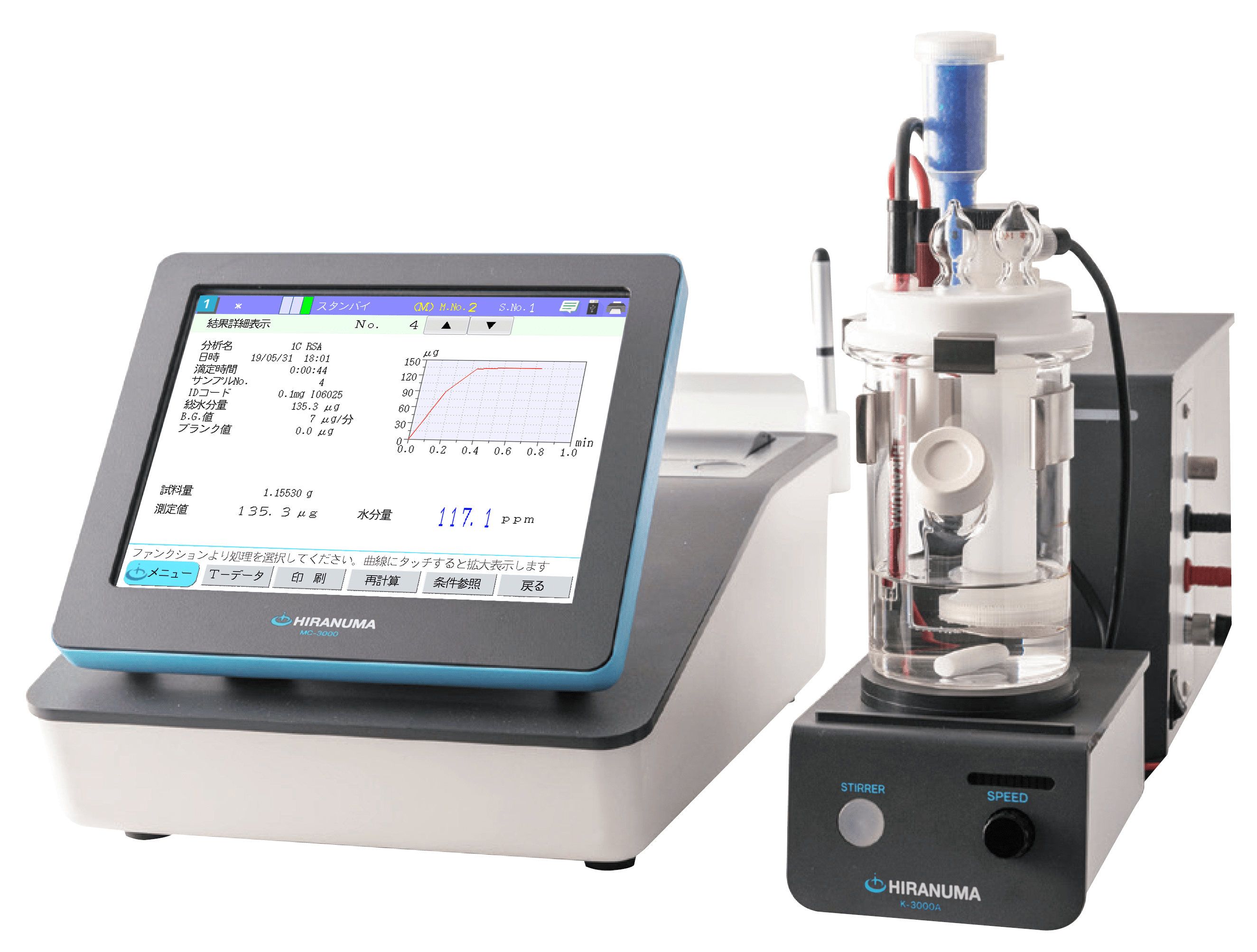Karl Fischer Titrators
Karl Fischer titrators are the industry standard for accurate determination of moisture content in solids, liquids, and gases. These instruments use the Karl Fischer reaction to provide precise results at trace levels, making them essential in quality control, research, and regulatory compliance.
Why Use a Karl Fischer Titrator?
Moisture can have a major impact on product stability, performance, and safety. Karl Fischer titration offers a reliable and specific method for water determination, with results far superior to traditional drying methods. Whether you need to measure moisture at ppm levels with coulometric titration or in larger samples with volumetric titration, Karl Fischer titrators deliver the precision modern laboratories require.
Karl Fischer Titrators from JM Science
At JM Science, we provide a full range of Karl Fischer titration systems to meet diverse laboratory needs:
-
Coulometric Karl Fischer Titrators – Ideal for ultra-low moisture determination (1 ppm to 5%).
-
Volumetric Karl Fischer Titrators – Perfect for higher water content measurements (0.01% to 100%).
-
Hybrid & Specialized Systems – Offering flexibility for unusual sample types or specific industry requirements.
Our instruments are designed for accuracy, user-friendly operation, and long-term durability. With over 36 years of experience, JM Science supports customers across pharmaceuticals, food and beverage, chemicals, energy storage, and environmental testing.
Applications of Karl Fischer Titration
Karl Fischer titrators are widely used for:
-
Pharmaceuticals – Stability testing, excipient and API analysis
-
Food & Beverage – Moisture in fats, oils, and additives
-
Energy & Batteries – Electrolytes, solvents, and specialty materials
-
Chemicals & Polymers – Solvents, resins, and industrial formulations
Explore our extensive application notes library to see real-world examples of Karl Fischer titration in action.
Partner with JM Science
Since 1989, JM Science has supplied laboratories across North America with high-quality analytical instruments and technical expertise. More than a supplier, we are a trusted partner in advancing science and ensuring reliable results.
👉 Browse our Karl Fischer titrators below, or request a quote to find the best solution for your laboratory’s moisture analysis needs.
Frequently Asked Questions (FAQ) – Karl Fischer Titrators
Q1. What is a Karl Fischer titrator?
A Karl Fischer titrator is an analytical instrument that determines the water content in solids, liquids, or gases using the Karl Fischer chemical reaction. It provides accurate results at very low moisture levels compared to traditional drying methods.
Q2. What is the difference between coulometric and volumetric Karl Fischer titration?
Coulometric titration is ideal for samples with very low water content (from 1 ppm up to about 5%). Volumetric titration is used for samples with higher water content (0.01% to 100%). Both methods provide reliable and precise results depending on the application.
Q3. Which industries use Karl Fischer titrators?
Karl Fischer titrators are used across pharmaceuticals, food and beverage, energy and battery research, environmental testing, and chemical manufacturing — anywhere precise moisture analysis is critical.
Q4. Why is Karl Fischer titration preferred over other moisture determination methods?
Unlike drying ovens or loss-on-drying techniques, Karl Fischer titration specifically measures water content, not other volatile components. This ensures accurate and reproducible results, especially in sensitive or complex samples.
Q5. What support does JM Science provide for Karl Fischer titrators?
JM Science offers technical expertise, application notes, consumables, and long-term service support. With over 36 years in business, we help laboratories choose the right titrator and achieve consistent, reliable results.
Looking for consumables? See our Titrator Parts & Accessories, including electrodes and burettes. For oil analysis, explore the EV-2000L Oil Evaporator. More real-world methods can be found in our Application Notes.

